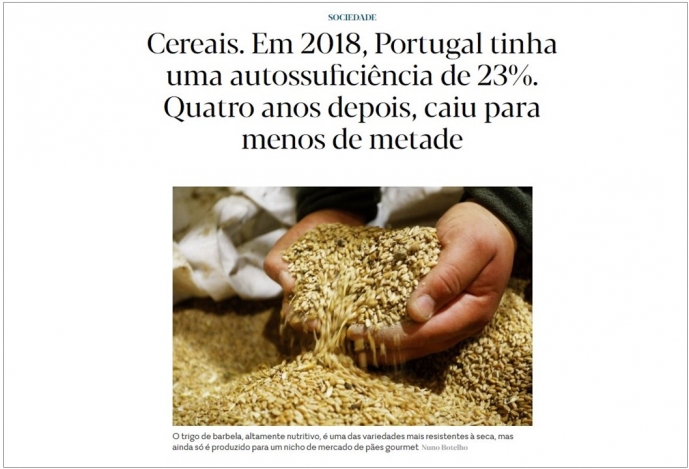Conciliating food security and environmental sustainability objectives through city-region food systems

There is a growing awareness of the increasing vulnerability of global food systems due to natural and anthropogenic causes, from the COVID-19 pandemic to the current war in Ukraine. Adding to this, the food system is the single largest driver of global environmental change and transgression of planetary boundaries, among which are climate change and water use.
Recent studies on City Region Food Systems Environmental Sustainability were carried out within the scope of the BIOPOLIS Programme of the Research Centre in Biodiversity and Genetic Resources, by the postdoctoral researcher Andreia Saavedra Cardoso. Results for the Lisbon city region point to a food self-sufficiency capacity of more than 70%, variable according to the selected diet. The proposed agrarian land use changes also suggest that the relocation of the regional foodshed could be done so that 68% of its productive area would be located in Green Infrastructure area. These results suggest that the Green Infrastructure besides bringing together all the fundamental areas on which the ecological sustainability of the territory depends can contribute in a very significant way to regional food self-sufficiency and to the implementation of city-region food systems.
The partial relocation of the food system can be seen as a resilience strategy, which aims to reduce risk in situations of natural or anthropogenic disturbances, e.g. in food distribution and price volatility, by building adaptive capacity to eventual failures of the conventional system, based on long distribution chains.
This study was highlighted in a national newspaper:
"Cereais. Em 2018, Portugal tinha uma autossuficiência de 23%. Quatro anos depois, caiu para menos de metade” | Expresso | March 18, 2022